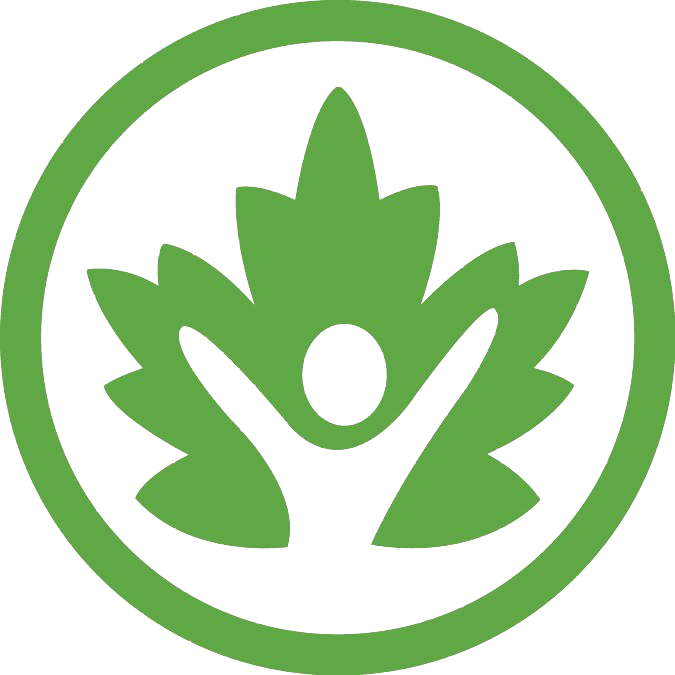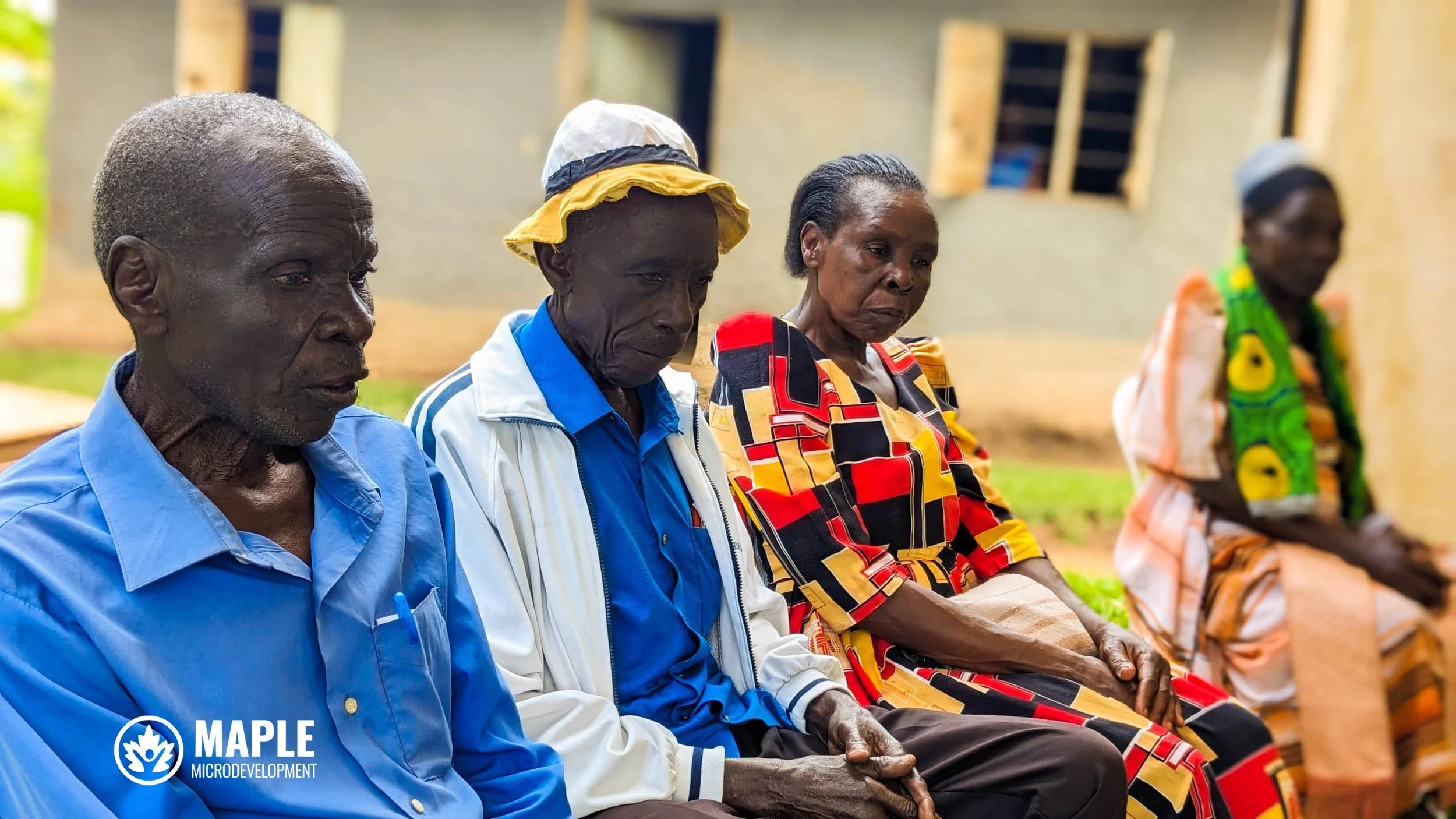by Rogers Muduku
September 1, 2025
MAPLE-AFRICE collaboration sparks community-led custodianship with the Bamasaba of Mt.Elgon, Uganda
Maple and the Africa team pose for a picture after a productive dialogue.
The MAPLE–AFRICE collaboration is setting a new precedent in community-led conservation - one where traditional knowledge is not just respected, but restored to its rightful place.
The Bamasaba people of Mt. Elgon in Eastern Uganda consider the mountain to be the embodiment of Masaba, their founding father, who lived in the caves back in the earlier centuries. To say that Mt. Elgon is special to the Bamasaba community is under-estimating its cultural, spiritual and ecological importance. Therefore, restoring and preserving the heritage of Mt. Elgon is the reason why since 2022, MAPLE Microdevelopment, in collaboration with the African Institute of Culture and Ecology (AFRICE), have been on a mission to protect the mountain’s ancestral forests, wetlands, and farmland.
With a special focus on youth engagement and through a series of dialogue meetings, elders, custodians and members of the community are coming together to share, preserve, and act on traditional wisdom to care for the land, protect the ecosystem, and maintain biodiversity across the eastern Ugandan districts of Mbale, Sironko, Manafwa, Bududa, Namisindwa and Bulambuli and extending into the neighboring Kenya.
MAPLE’s Role
A Custodian recounts a time when nature thrived with rich biodiversity and harmonious interactions between humans and the environment. Communities lived sustainably, conserving forests, rivers, and wildlife while maintaining ecological stability before the decline of the environment.
Founded in 2008 and focused on community economic empowerment through offering basic business training and village savings and loans(vsla.net), Uganda is MAPLE’s oldest branch. Since, we have grown to a full-fledged multidimensional program through the Mbale Center for Innovation and Design (MCID), focused on building creative capacity and training for youth engagement and leadership, a key focus to empower new leaders and entrepreneurs in sustainability.
While learning from Africe on how to conduct these dialogues, MAPLE has been on ground meeting directly with the Bamasaba Committee on a monthly basis to support the process of documentation of the customary laws.
Guardians of the Earth: Indigenous leadership in action
Each custodian carries a unique role in the cultural and ecological fabric of the Bamasaba. Some of them like Mabonga Wilson, who leads the protection of the Lunyinyi Sacred Swamp, a ceremonial site in circumcision rituals. Inspired by dialogues facilitated by MAPLE-AFRICE, Wilson has been encouraging his clan to plant indigenous trees like Musizi, Albezia and Cordia Africana around the swamp to protect it from encroachment.
Similarly, Makubo Godfrey, the custodian of Lubanga Sacred Forest, implemented traditional by-laws to curb deforestation and grazing, backed by communal enforcement. These rules - including penalties for unauthorized tree-cutting or forest access - are restoring respect and stewardship for nature.
Women custodians, often overlooked in traditional narratives, are also playing a pivotal role. Muswiya Florence, Musiya Hindu, and Mukuwa Rosemary are actively counseling young girls, preparing traditional foods, and guiding sacred rituals - all while ensuring these cultural practices align with sustainable ecological principles.
Indigenous wisdom meets empowerment
Beyond protection, the project fosters empowerment. Through facilitating sessions related to herbal knowledge, the custodians, especially women custodians, are rediscovering the medicinal value of native plants. In a simple exercise, they collected and explained herbs like Imbuche (basil) and Makoye (blackjack), revealing their uses for stomach aches, malaria, ulcers, and even paralyzed limbs. This intergenerational exchange is restoring pride, confidence, and agency.
MAPLE and AFRICE are walking alongside the communities, listening to their knowledge systems, and supporting their leadership. Our approach is rooted in partnership, and we believe that ecological restoration must be driven by the people who know the land best.
Sacred sites, sacred responsibility
The stories from custodians like Kabala Anthony (Bisibinji Stone), Masaba Peter (Shirindwa Forest), and Mutuma Vincent (the Rain Custodian) echo a shared urgency: these sacred ecological conservation sites are under threat, and the time to act is now. Yet thanks to this initiative, hope is rising - trees are being replanted, encroachment is being reversed, and younger generations are being drawn into the sacred responsibility of guardianship for nature.
A model for indigenous-led sustainability
Custodians showcase their indigenous trees and herbs, highlighting the benefits they gain when the environment is preserved. Some plants are used as food, others as medicine, and certain herbs are employed to treat their animals. and more benefits.
As custodians reconnect with their ecological roles, they are also reclaiming their voice, power, and future.
Maple Microdevelopment is founded in Oregon, US, and as an international organization has increased its network to three key regions: post-conflict areas of Northern and Eastern Uganda, restoring coastal wetland in Mapuche territory of Lake Budi, southern Chile, and recover sense of community with houseless people in Eugene, Oregon. Working directly with the communities, with no nonprofit middlemen, our mission is to empower collectives by strengthening community economies, building capacities for self-governance, and safeguarding the land-based assets vital for continuing local livelihoods. In all programs, we provide the logistical and technical support needed for community self-determined approaches.
Meet our author and program manager of the project, with this short video clip:
If you are interested in supporting this project and donating, please click here




